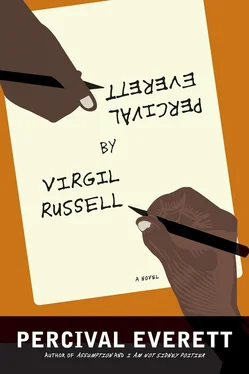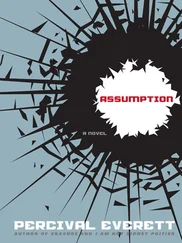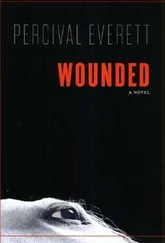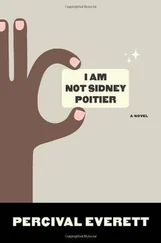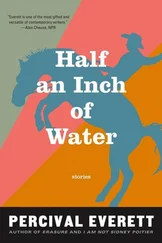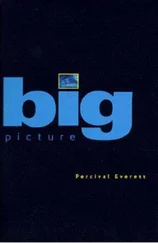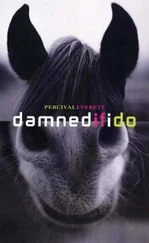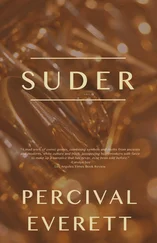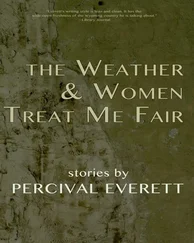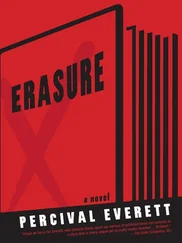I was never much with prayers, but all superstitions have their place.
17
My wife did not fall in love with me because of it, but she did turn my way when I noted that she was wearing a Watteau. It was red satin and she looked nice.
What’s a Watteau?
A French Rococo-era painter. And a style of formal dress, popular in the early eighteenth century.
And she was dressed this way because?
It was a costume ball, some museum event or other. Sometimes you’ll see a Watteau train on a wedding dress these days. It’s pleated down the back.
And how were you dressed for this ball?
I went as Nat Turner.
How did you know what a Watteau was?
My education, I guess. The irony of Nat Turner recognizing a Watteau was not lost on her.
I’ve never been to a costume party.
How do you know?
You should tell stories from now on without my interruptions.
The way you tell stories.
The way I tell stories.
18
The Gang of Six strode into our building chanting, but not in unison and so it made for loathsome and hard-featured music. The gist of their rant-chanting was that we were in trouble, all of us and of course we knew they were coming, as all the custodians had disappeared and as well as the night nurse. Keys seemed to be the key word in their chorus. All the residents shrank away and gave sidelong glances that made every one of them look as guilty as hell. All except Billy, who barked into the air, not directly at them, If you can’t keep up with your toys, maybe you shouldn’t have them. Billy did in fact have balls. I stood firm. Though frightening, they could not match so much that I had seen in life. I noticed a bit of dirt under one of my nails and shoved my hands in my pockets.
Memetne adloqueris?
Sprichst du mit mir?
Tu me parles?
Du taler til mig?
Stai parlando con me?
By some dissymmetry, the underlying reasons of which elude me, however much constructed, affirmed, and validated by the very structure of the language that allows at least a pretense of making meaning, I am able to reveal my story without locating myself in the telling, at the time of the telling. Perhaps not even whether I am in fact the narrator at all. It would appear, at least on the surface, that I am necessarily, logically committed to choosing either past, present, or future tense for my narration, but I will demonstrate that was not true. There is nothing instantaneous in these or in any pages you will ever read. If it is written down, it was written down, it is dated and it turns out that measurement is neither important nor possible. For example, this sentence was or is being written one year and a day after the composition of the preceding sentence. I am lying. I wrote the second sentence first, two days prior to the first, or was it two minutes? at the same time, one with my left hand, the other with my right.
Harley winked. His eyes twinkled. All right, all right, forget all you know. This is a new day. Come out of your fog, old people. Adopt this new day. Give me my keys and the storm will be but a drizzle. If we search and find the keys in your possession, there will be hell to pay.
There was no talking among us old people. We were being inconvenienced. We were not terrified. Not one of us had had a normal bowel movement in years. We kept track of wellness by measurements and marked the progress of days by counted-out pills. We had seen death. We had buried children. They could not scare us. All we had left was our dignity.
Only Billy and I knew the whereabouts of the keys and no one would find them. The thugs sought more to make messes than to perform thorough searches and so they did. We old people did not care. Cleaning up gave us something to do. They concluded with Billy’s apartment. The brute Leon and Harley entered shoulder to elbow and we listened from the corridor.
Cletus and Ramona blocked the door. I stood with Billy, held his hand. I looked at Cletus’s head. It was a strange-looking machine with a huge set of gears that did not mesh, connecting with a series of drumlike rollers. I turned to Ramona and observed on her shoulder a small woman, dressed like her host and using a shovel to scoop up brown crystals from a pile in the hollow of Ramona’s clavicle and pitch them into Ramona’s dumbstruck open mouth.
Ed ella a me: Nessun maggior dolore,
Che ricordarsi del tempo felice
Nella miseria; e ciò sa ’l tuo dottore.
A crash of glass. Glass crash. Crash. Billy and I knew. The fuse had been lit and Billy let go of my hand. On the wall of his living room had hung a framed photograph of Billy as a much younger man and his daughter. She was twenty-five at the time of its taking. A year later she would be gone. It was one of those color portraits that you hate unless you love the people in it. She was positioned just behind her father, just over his left shoulder. She stood. Billy sat. Her hands were on him, her left on his left shoulder, her right gently, just barely, touching the right side of his collar and neck. Together they stared at the camera but somehow gave the impression of staring at each other, as if looking into a mirror. Billy’s hands were not in the photograph, but I felt the tension of his wanting to reach up and touch his daughter’s fingers, her face. It was that framed picture that had crashed to the floor. Billy shouted something I could not make out but understood all too well and then started toward the door of his apartment faster than his ninetyyear-old legs were capable of moving. He fell, not in slow motion, but quickly, and that was the real horror of the sight, a man who always shifted so slowly through his range of positions was now moving rapidly. I think his head hit the baseboard, but whatever, all became immediately still, especially Billy.
19
An old man, with his beautiful daughter on his arm, walks through a park, along a street, emerges from the smoke of a dream and into some light that falls from a shop’s window. Behind the window, laid on a black fabric, are beads of gold and silver. Seated inside, sidelong to the window, is an old man, his face bent earnestly over the open workings of a watch. I gazed with little or no interest at the gears and springs.
I am not a man of science. I am not proficient in any branch of nature study. I do not know the difference between an amphibian and a reptile. I have no yearning for hard knowledge about the hard world. And yet I have no affinity for anything spiritual. In fact, I have a pronounced, conspicuous, and striking absence of an affinity for anything spiritual.
I know but one hard thing about the hard world and it is this: from the sum of all theories, as arranged in accordance with ascertained facts, we make a few assumptions, that we have actually ascertained facts, that we are actually here to ascertain them, and that there is actually a here.
20
So you are a writer, Billy had once said to me as we sat at the picnic table on the lawn.
Apparently.
How come I’ve never heard of you?
Your poor education?
He laughed.
I’ll bet my daughter knew your work. She was a real reader. And not that romance stuff or just detective books. Real stuff like Goethe and Joyce.
That’s wonderful.
What kinds of things did you write?
His use of the past tense bothered me, but at our ages everything seemed to be in the past tense. I wrote some novels.
If I could see worth a damn I’d ask to read one of them.
Thank you, Billy.
I was just a simple accountant.
I nodded. I had heard this before and the punch line that would follow.
Everybody likes an accountant with no balls. Not your tax man, you want your tax man to have balls, but not your accountant. He looked at his thumbnail, slowly raised it to his mouth and tried to bite it. My daughter was an angel. She had knock knees.
Читать дальше
